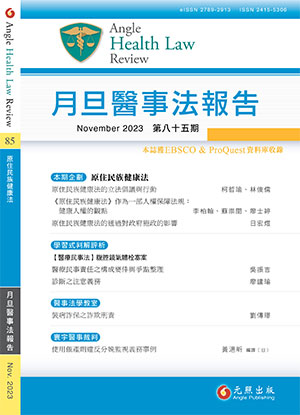原住民族健康法作為一部人權保障法規:健康人權的觀點【本期企劃】 試閱
Indigenous Health Act as Human Rights Legislation: A Right to Health Perspective
本文透過回顧聯合國系統中原住民族權利保障之發展,以及國際公約關於原住民族健康之人權規範,審視2023年5月26日通過的「原住民族健康法」對臺灣人權保障之意涵。在過往人權公約國家報告中,政府與審查委員會大多著重自決權、參政權、司法救濟平等權、工作權、受教權、居住權,以及文化資產保存和語言權利,與原住民族健康議題相關內容付之闕如。終於在兩公約第三次國家報告時,委員會在結論性意見中建議政府參考聯合國《原住民族權利宣言》儘速通過原住民族健康法,以建構個人及集體健康權保障之立法框架。因此,本文企圖連結國際人權規範及原健法的宗旨,並探討其為消弭原住民族健康不平等及實踐文化安全之展望與挑戰。
By reviewing the development of the rights of indigenous peoples in the United Nations (UN) system and the right to health of indigenous peoples in international human rights treaties, we examine the implications of the “Indigenous Health Act” passed on 26 May 2023 in Taiwan. In previous state reports on the implementation of human rights treaties, the government and the International Review Committees (IRC) focused on issues related to the rights concerning self-determination, political participation, equality in judicial remedies, work, education, housing, as well as preservation of cultural properties and languages, while health issues were lacking. During the review cycle for the third report on implementing the International Covenant on Civil and Political Rights and the International Covenant on Economic, Social and Cultural Rights, the RC recommended in its concluding observations that the government, informed by the UN Declaration on the Rights of Indigenous Peoples, pass the Indigenous Health Act as soon as possible to establish a legislative framework for protecting the individual and collective right to health. Therefore, we analyse the law’s objectives based on the relevant international human rights norms and explore its prospects and challenges for promoting health equities and cultural safety among indigenous peoples in Taiwan.
007-016






